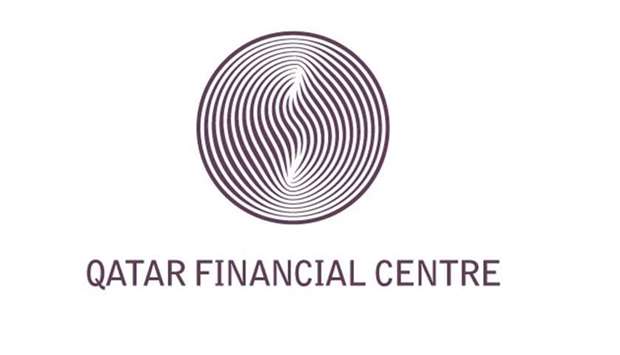Takaful, or Islamic insurance, which has less than 1% penetration, could make further inroads into Qatar, and there is also a need for stricter Re-takaful controls, according to the Qatar Financial Center (QFC).
"The takaful sector is yet to benefit from a more robust regulatory framework, particularly for family takaful given its low penetration," said a report prepared by the QFC in association with Refinitiv.
Highlighting that Takaful has gained little traction in the country, the report indicated a "substantial" growth opportunities, if the government makes it more of a priority and there is greater public awareness.
The report said Takaful contributions in Qatar are mainly sourced from property and liability coverage for corporates, with substantial opportunities in the personal lines (family takaful), particularly medical takaful.
Like Malaysia, QFC said, Qatar could enforce the legal separation of general and life takaful businesses, allowing an appropriate grace period.
"Such a move would encourage local takaful firms to focus greater attention on family takaful lines, which would boost the segment’s long-term growth," it added.
Qatari takaful assets were estimated at $1.09bn, or 7% of the overall insurance sector’s total assets during the first half (H1) of 2019. Takaful assets saw a compounded annual growth rate (CAGR) of 5% since 2015 against total insurance asset CAGR of 11%.
Takaful’s underperformance was largely due to a decline in assets during 2015-16 for Qatar Islamic Insurance, which has 27% of the country’s total takaful assets.
Takaful has fared better in the Qatari market and outperformed conventional insurance assets growth over the past two years, growing 6% during H1 2019 compared to 3% in the conventional insurance sector.
The largest drivers of takaful growth are the conventional insurance operator’s Islamic subsidiaries, which have a collective market share of 45%.
The conventional insurance and takaful sectors’ growth shows their resilience in the face of challenging global and regional economic conditions. The growth is being driven by non-life insurance and business stemming from infrastructure projects being built as part of Qatar’s National Vision 2030 and preparations for the 2022 FIFA World Cup.
On Re-takaful business in Qatar, the report said it is mainly carried out through foreign providers, which can potentially use the Qatar Financial Center as a base for their Qatari business.
Permissible by some Shariah scholars, takaful operators may resort to conventional reinsurance if a Shariah-compliant option is not available, resulting in some leakage of takaful contributions to the conventional sector.
Introducing stricter Re-takaful rules, such as those enforced in Malaysia, would ensure the full Shariah-compliance of takaful operators in Qatar as well as spur the establishment of domestic Re-takaful providers to accommodate their requirements, according to the report.
"These regulations could either restrict ceding takaful contributions to Shariah-compliant firms, or provide strict conditions for permitting conventional reinsurers to accept takaful business," it said.
Highlighting that Takaful has gained little traction in the country, the report indicated a "substantial" growth opportunities, if the government makes it more of a priority and there is greater public awareness.
The report said Takaful contributions in Qatar are mainly sourced from property and liability coverage for corporates, with substantial opportunities in the personal lines (family takaful), particularly medical takaful.
Like Malaysia, QFC said, Qatar could enforce the legal separation of general and life takaful businesses, allowing an appropriate grace period.
"Such a move would encourage local takaful firms to focus greater attention on family takaful lines, which would boost the segment’s long-term growth," it added.
Qatari takaful assets were estimated at $1.09bn, or 7% of the overall insurance sector’s total assets during the first half (H1) of 2019. Takaful assets saw a compounded annual growth rate (CAGR) of 5% since 2015 against total insurance asset CAGR of 11%.
Takaful’s underperformance was largely due to a decline in assets during 2015-16 for Qatar Islamic Insurance, which has 27% of the country’s total takaful assets.
Takaful has fared better in the Qatari market and outperformed conventional insurance assets growth over the past two years, growing 6% during H1 2019 compared to 3% in the conventional insurance sector.
The largest drivers of takaful growth are the conventional insurance operator’s Islamic subsidiaries, which have a collective market share of 45%.
The conventional insurance and takaful sectors’ growth shows their resilience in the face of challenging global and regional economic conditions. The growth is being driven by non-life insurance and business stemming from infrastructure projects being built as part of Qatar’s National Vision 2030 and preparations for the 2022 FIFA World Cup.
On Re-takaful business in Qatar, the report said it is mainly carried out through foreign providers, which can potentially use the Qatar Financial Center as a base for their Qatari business.
Permissible by some Shariah scholars, takaful operators may resort to conventional reinsurance if a Shariah-compliant option is not available, resulting in some leakage of takaful contributions to the conventional sector.
Introducing stricter Re-takaful rules, such as those enforced in Malaysia, would ensure the full Shariah-compliance of takaful operators in Qatar as well as spur the establishment of domestic Re-takaful providers to accommodate their requirements, according to the report.
"These regulations could either restrict ceding takaful contributions to Shariah-compliant firms, or provide strict conditions for permitting conventional reinsurers to accept takaful business," it said.


